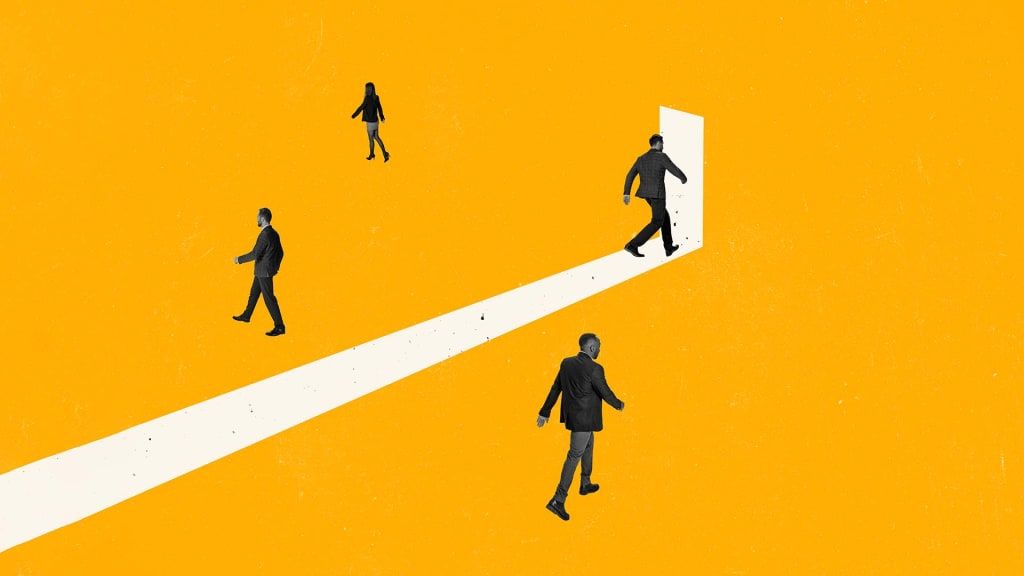In Life, You Must Choose Your Regrets

The Inevitability of Regret
Christopher Hitchens, with his knack for capturing life's complexities, once remarked,
“In life, we must choose our regrets.”
While initially, this might sound like a call to pessimism, it's actually an invitation to introspection. Every individual, at some point, faces moments of reflection where they ponder over the 'what ifs' and 'if onlys'.
Recognizing this inevitability can be the first step towards making more informed decisions.
Opportunity Cost: The Root of Regret
Life is a series of choices, and every choice comes with its own set of trade-offs. The principle of opportunity cost teaches us that when we commit to one option, we inadvertently let go of another.
Think of it as standing at a crossroads: the path you choose will define your journey, but the road not taken will always hold its mysteries.
Whether it's a career move, a dietary choice, or even a simple daily task, the shadow of the unchosen often lingers, leading to that familiar feeling of regret.
Instead of being driven by immediate desires or societal pressures, what if we approached decisions by weighing the potential regrets?
This isn't about being overly cautious but about being introspective.
By asking ourselves, "Which regret can I live with?" we introduce a level of depth to our decision-making process.
This reframing can lead to choices that resonate more with our core values and long-term aspirations, ensuring a life of fewer regrets and more contentment.
The Science Behind Regret-Driven Choices
Our brains, complex and intricate, are the result of millions of years of evolution. They're designed to process vast amounts of information, make decisions, and, most importantly, ensure our survival. One of the most compelling demonstrations of how our brains operate, especially when it comes to decision-making under duress, is the classic rat-and-cheese experiment.
In this experiment, rats are typically placed in a controlled environment where they are presented with two distinct stimuli: a treat (often cheese or another enticing food item) and a threat (like a mild electric shock). The objective is to observe how the rats navigate the choice between an immediate reward and the potential of discomfort or harm.
Consistently, the results have shown that when faced with the prospect of a treat or a threat, rats often prioritize their safety and well-being. Their decisions are heavily influenced by an aversion to discomfort. Even the allure of a delicious treat can be overshadowed by the fear of the impending threat.
This behavior underscores a fundamental aspect of many living beings: the drive to avoid pain or harm often outweighs the desire for immediate pleasure.
This aversion to discomfort is not just a quirk of rats. It's deeply rooted in the brain's architecture. The amygdala, a small almond-shaped structure in the brain, plays a crucial role in processing emotions, especially fear. When faced with potential threats, the amygdala becomes activated, triggering a cascade of physiological responses that prepare the body to either face the threat ("fight") or flee from it ("flight").
The rat-and-cheese experiment serves as a metaphor for the choices we humans face daily. Just like the rats, we often find ourselves at crossroads, having to decide between immediate gratification and potential long-term consequences.
Our decisions, whether we're conscious of it or not, are influenced by a mix of our past experiences, our brain's wiring, and our innate desire to avoid discomfort.
In understanding this, we gain insight into why we sometimes make seemingly irrational choices or why we might avoid certain beneficial actions due to the fear of short-term discomfort. Recognizing these patterns in our behavior can empower us to make more informed decisions, balancing immediate desires with long-term well-being.
Embracing and Minimizing Regret
Life is unpredictable, and even with the best intentions, we'll sometimes face outcomes that lead to regret. However, the goal isn't to eliminate regret but to manage and learn from it.
By acknowledging that some regrets are a natural part of life's journey, we can focus on minimizing their impact.
This means making choices that, even if they lead to regret, align with our broader life goals and values.
Navigating Life's Maze
Life is a maze filled with twists, turns, and crossroads.

While regrets are inevitable landmarks along the way, they don't have to define our journey.
By consciously choosing which regrets we're willing to live with and using our innate fear of profound regret as a compass, we can navigate life's challenges with greater clarity, purpose, and fulfillment.
Reflection Point: As you go about your day, take a moment to reflect on the decisions you face. Consider not just the immediate outcomes but the long-term implications. Which potential regrets can you embrace, and which can you act now to prevent? Such mindfulness can lead to a life of deeper satisfaction and purpose.